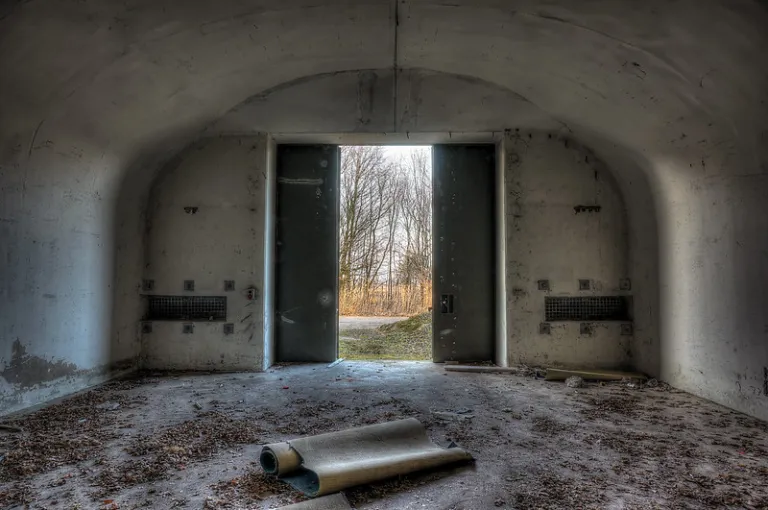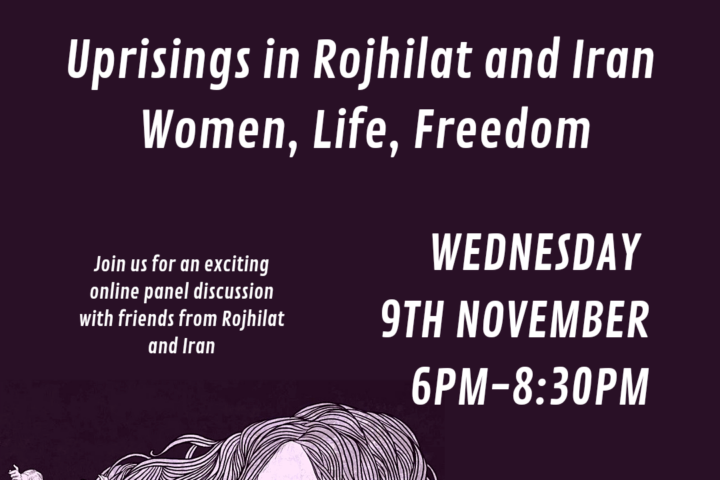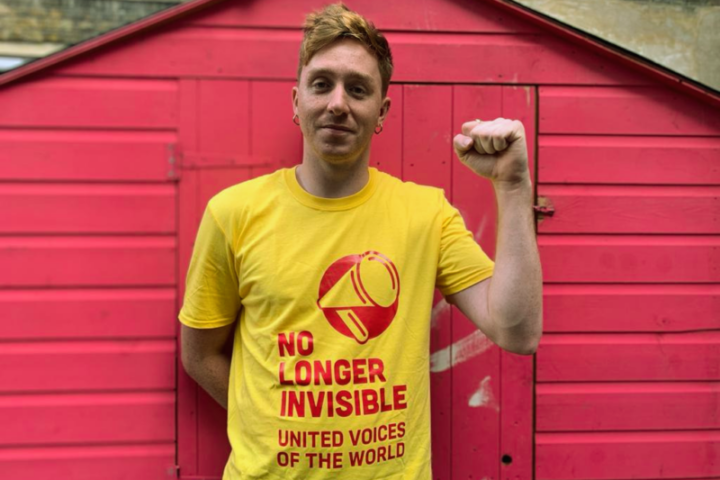Via freedomnews.org.uk
Comment,
When Putin launched his full-scale invasion of Ukraine in February, there seemed to have been a renewed –if only brief– discussion of nuclear weapons. In Britain, this mainly involved members of the right-wing press insisting that the West should impose a no-fly zone over Ukraine. This was followed by people who had the faintest idea of the impacts of nuclear weapons asking them why they seemed keen to see the end of life on Earth as we know it. Now, it would be inappropriate for me (or anyone in the west, more generally) to police the requests of people who are directly involved in the conflict; there is no irresponsibility on the part of those who have had their homes destroyed when they ask for a no-fly zone. The irresponsibility lies squarely at the feet of those with a significant platform who shield their warmongering by pretending to care about a country whose capital city they probably couldn’t have named before the start of the year.
Because of Vladimir Putin’s unpardonable crusade of Russian Imperialism, the likelihood of a nuclear conflict –while still remote– has increased. Some people are understandably afraid of the implications of all of this, while others (like the aforementioned British media) seem to want to get into a dick-measuring contest with a nuclear state. Without drawing equivocations between these two responses (the latter is much, much worse), it is relevant to mention that both are misguided; the warmongers, rather than feeling ready for a fight, should feel afraid, and those who are already afraid should’ve been afraid much sooner.
Like the mushroom cloud itself, the prospect of nuclear war resists direct observation. A full-scale nuclear war has not happened, and so we don’t know exactly what it will look like. If you live in a major city or industrial area, you never will because you will be the first to go. One thing is certain, however: in the first few days of the conflict, tens of millions of people will die. Now, I don’t know about anybody else, but I’m getting sick of looking at those concentric circles which illustrate the perimeter of the blast relative to my house and, therefore, the likelihood of my survival. Who’s to say that I would want to survive? Sure, there are plenty of books I haven’t read yet, and when all my friends are dead, I’d have a little bit more time. But engaging with literature proves difficult when your eyes have melted in their sockets. Likewise, I find it difficult to find what I want in the supermarket as it stands, let alone having to sift through its remains, occasionally finding a name tag or body part. Notice that I’m talking about myself here. This is because writing about –or even imagining– the aftermath of a nuclear war with all its intimate suffering proves effectively impossible. Like the bomb itself, the subject strips everything down to the atomised; my capacity to even think about other people is dramatically diminished. Without even launching a missile, nuclear weapons have turned me into a Tory. Even the language we use around nukes apes that of the market: incentive, deterrence, strategy. It makes us want to
fucking puke.
The truly apocalyptic element of all of this is nuclear winter; a subject which still generates some debate. The basic premise is that a nuclear exchange would create firestorms so massive that soot and ash would block out the sun, drastically reducing the temperature of the Earth’s surface. The ensuing famine would kill enough people to reduce the size of the world’s population to medieval levels. This is a subject of some dispute. Some specialists suggest that the makeup of modern cities makes them less likely to erupt in such a way. This is about as optimistic as it gets: that maybe we won’t all burst into flames immediately. This doesn’t provide much comfort. My local area has enough cigarette papers lying around that if they all went up at once, my summer plans would be severely dampened. I happen to be convinced that the nuclear winter hypothesis is plausible, but even stopping short of rendering the Earth’s surface uninhabitable, nuclear weapons stand as one of the worst things ever created, and abolishing them should be at the top of everybody’s list of priorities. Without the abolition of nuclear weapons, all other forms of social and political change risk being completely destroyed. I’m all for climate action and environmentalism, but creating an eco-friendly world which still has nuclear weapons makes about as much sense as cleaning the windows of the Labour Party Headquarters while still allowing Tony Blair to have a passkey.
Whenever I air my disgust at these weapons, I hear — without fail– the whisperings of the omnipresent Ghost of a Conservative Christmas Past. “But what about deterrence?” they say, with basically no self-reflection whatsoever. The argument goes that because we (whatever “we” is supposed to mean, the West? Britain? NATO? Pluto?) have nuclear weapons, it acts as a deterrent to other nations, nuclear and non-nuclear alike, who may wish to attack us. Okay… well… what did the US and UK do to this notion of deterrence when they told the world that the Ba’ath Regime’s possession of WMD’s (although no such possession existed) was an explicit justification to invade. If nuclear weapons guarantee our safety, and the safety of any nation that holds them, then why is there a concerted effort to stop Iran from possessing them? While we’re on the subject of proliferation, why don’t we give nuclear weapons to Yemen? Or Palestine? Or Ukraine? If nukes deter imperialism so well, then surely these countries should get a piece of the radioactive pie? Or does the notion of expanding the number of nuclear nations sound like a bad fucking idea? The logical conclusion of the deterrence argument is that we will only be safe once every country on Earth is completely armed to the teeth. Either that, or you must convince yourself that Boris Johnson (or whoever else Murdoch decides to give the job) is one of the individuals uniquely qualified to be trusted with the red button; that he has some special talent, understanding, or moral wisdom that the leaders of most other nations don’t. If you believe that, then maybe we are all better off dead.
I understand that it’s a difficult thing to grapple with: that we’ve given the nuclear codes to someone who might accidentally use them thinking that he’s unlocking his phone, but it’s worth thinking about as it throws this deterrence argument into sharper relief. Accidents happen. And if we base our nuclear policy on the notion that “if you nuke us, we will definitely nuke you back,” then there is little room for
takebacks, or explanations. An important point to raise here is that nuclear close calls often aren’t known about by the public when they happen. It’s usually many years after that the knowledge is made available to everyone. A close call may have already happened in the Russia/Ukraine Conflict, for example. More may be to come, and there is very little way for us to know about it while it’s happening.
So, what can we do about it? The scale of the problem is so huge that any sort of activism feels definitionally futile. There will be no closed fist salutes as we form a hunting party to give nuclear weapons a ruddy-good seeing to. There will be no cheers as a deactivated nuclear warhead is impaled by a peace flag. The process is going to be long, and hard, and frustratingly unsexy.
I recently watched a conference held in Vienna by the International Campaign for Nuclear Disarmament. Originally, I was planning on writing a separate article solely on the notes I took, but then realised that each panel could warrant thesis-length discussions of their own. I’d encourage you to watch the livestreams if you have the time, but one of my main takeaways from the whole thing is that while the movement certainly needs more training in direct action, a majority of the time will have to be spent in negotiating rooms, hashing out deals that are only half agreeable to everyone involved. Naturally, this will have to involve talking to people from all over the political spectrum. People we may, of course, disagree with. And I know I spent the first half of this article insulting conservatives, but I’ve matured a lot since then.
Speaking as someone who probably spends a little too much time reading instead of acting, it is indeed a tough pill to swallow that the process of denuclearising the world won’t map neatly onto the anarchist programme as it exists in my head. But a fairly cursory look at history reveals that any sort of broad-based left-wing movement usually has to sacrifice its moral purity to move the needle towards
progress. I’m certainly not suggesting any sort of capitulation to the world view of whatever neo-liberal Prime Minister is next. But, on the off-chance that you get to make progress on this issue in any capacity by negotiating with them, then you may have to hold your nose and remind yourself that they too are a child of God. Even if you don’t believe it.
Ellis Fox




